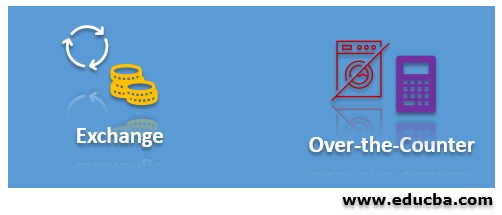Updated July 21, 2023

Introduction to Spot Market
Spot market, also known as cash market is a financial market wherein financial instruments or commodities are traded for their immediate delivery. Delivery means actual exchange of financial instruments against cash consideration.
Thus, it is a financial market wherein delivery of the financial instruments takes place on the spot when the transaction is carried out between the two investors, being buyer and the seller; and is not delayed to any future date.
Explanation
In the spot market, the financial instruments are exchanged immediately against consideration. The transfer of funds may take some time, say T+2 days, but the agreement between the trading parties is to trade for the instrument “at the spot”. In contrast, there are future transactions, wherein the parties agree for a price of the underlying asset in advance, and the actual transfer of the asset takes place at a future date, as per the contract. It is not the case with spot market since delivery of the asset takes place immediately.
Characteristics of Spot Market
Spot market can be characterized by the presence of some features.
- The delivery of the financial instrument takes place immediately and is not delayed to any future date.
- The transaction price at which settlement takes place is the price of the financial instrument at the spot on the stock exchange, known as spot rate.
- The transfer of funds also takes place immediately. However, the actual transfer of funds may take some time such as 2 days after the transaction date.
How to Trade on Spot Market?
Trading on spot market takes place at the spot price. It is the price of the financial instrument that is reflecting at the spot in the market. The price is decided based on the orders posted by the buyers and sellers on the exchange. When the price quoted by the buyer matches with the price quoted by a seller and relevant quantity is also available for transfer between them, then the transaction takes place at such spot price and delivery is carried out.
Example
Let us consider an example where you are interested to purchase the shares of XYZ Ltd, which are trading on the stock exchange. You want to take the actual delivery of the shares immediately. In such case you will visit the exchange and place your order for shares of the company and such a transaction will be a transaction in the spot market.
Types of Spot Market
Typically, there are two kinds of spot markets, namely exchange and over the counter (OTC).
1. Exchange
It refers to a market where dealers as well as the investors come together on the trading platform for dealing in various financial instruments and commodities. Prices are decided based on the quantum of orders placed by the market participants and quantum offered for trading by the traders. An example of exchange is New York Stock Exchange (NYSE).
2. Over-the-Counter
It is a kind of market where, where transactions take place between the buyers and the sellers directly. There is no centralized exchange for making the transactions. In such market the terms are not standardized and as such depend on the buyers and the sellers.
Spot Market vs Forward Market
Spot market is a trading market wherein the financial instruments are traded in such a way that a transaction takes place at the current prices prevailing in the market, known as spot prices, and the delivery of the instruments takes place immediately. Accordingly, the related fund transfer is carried out at the time same which may take some time to reflect in the seller’s account.
On the other hand, forward market is a trading market in which a contract is carried out between the investors to effect delivery of the underlying instrument at a future date. The price for future delivery of the instrument is fixed originally at the time of the contract, and the same is known as forward rate. The rate is quoted on premium or discount to spot rate, based on market expectations. Thus, in forward market, delivery and fund transfers take place at a future date and the price for such transaction is fixed in advance at the contract date.
Advantages and Disadvantages
Following are the advantages and disadvantages are given below:
Advantages
Below are the advantages:
- Spot contracts are easier to carry out as prices are transparent and there is no ambiguity with respect to the same.
- The investors who purchase from spot market can opt to hold the securities until they find a better deal.
- There is less capital investment since there is no obligation for a minimum investment as in case of futures contracts.
Disadvantages
Below are the disadvantages:
Spot market can be risky for investors in certain type of instruments such as foreign currency. This is because prices are highly volatile and exchange rates change frequently in short duration of time. Companies may incur significant risk if they rely on spot market for such transactions. It is better to opt for forward or options contract in such case.
Recommended Articles
This is a guide to Spot Market. Here we also discuss the introduction to Spot Market along with the characteristics, types, advantages, and disadvantages. You may also have a look at the following articles to learn more –

